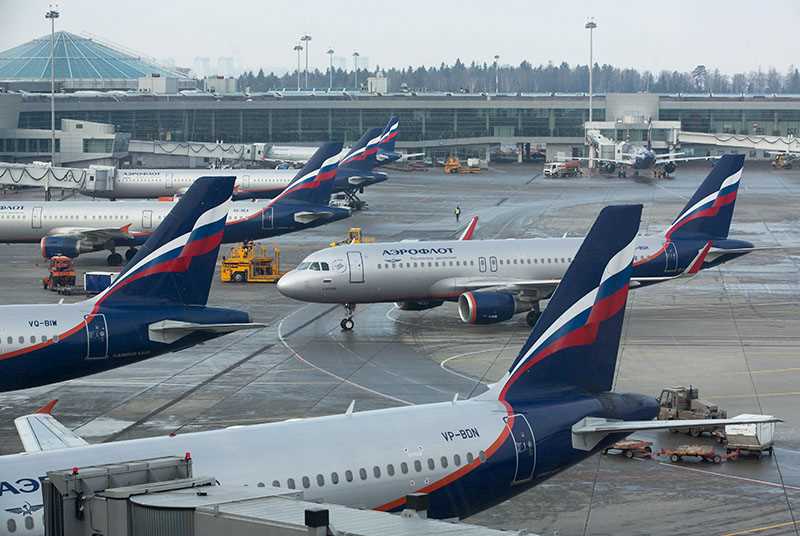Many people have the impression that Russian Aeroflot is a slightly ramshackle airline company. Old prejudices are just one of the reasons that the equity fund SKAGEN Kon-Tiki has invested in the airline giant. Aeroflot has in fact renewed its fleet significantly over recent years and this provides them with a good competitive advantage given their low operating costs relative to peers. The attractive pricing of Aeroflot shares is precisely why many people continue to have the wrong impression of the company.
Three good reasons
We find three good reasons to invest in the airline company:
- First, Aeroflot is a relatively modern company with one of the youngest fleets among the larger airlines. At the end of 2017, the Aeroflot group had 332 airplanes with an average age of 6.2 years. Seen in isolation, Aeroflot operates with 224 airplanes with an average age of just 4.1 years (the group actually consists of four different airline companies).
- The Aeroflot group now operates an international fleet consisting primarily of Airbus and Boeing planes. At the end of 2017, the Aeroflot group had only seven Antonov planes, all of which are leased out to other operators. By way of comparison, Aeroflot and the other subsidiary companies operate 176 Airbus and 98 Boeing planes.
- Finally, it is worth mentioning that Aeroflot also owns Russia's foremost low-price airline, Pobeda, which currently operates 16 planes, primarily in its home market. We believe that the premises are good for Pobeda to compete in the low price segment, while Aeroflot focuses more on foreign and business travel.
Profitable home ground
In addition, Aeroflot is the main airline company at the Sheremetyevo airport in Moscow, which is their home ground.
The Aeroflot group accounts for more than 80% of the passengers travelling through the airport and operates with its own terminal. We believe that this provides the company with a clear advantage in their home market, particularly when it comes to transit passengers who now account for 13.5% of airline passengers. It is also worth mentioning that the Aeroflot group has a minor stake in Sheremetyevo, which provides extra security in terms of future positioning, particularly since the airport is planning to double its capacity within the next ten years.
More shareholder-friendly board
The Russian state is still the majority owner of Aeroflot. The company is also managed with national interests in mind and is an important part of Russia's transport strategy. For a minority shareholder such as SKAGEN, this constitutes a greater and different type of risk than that posed by private companies. To illustrate, the company had to step in when a competitor filed for bankruptcy in 2015, which entailed an extra cost for Aeroflot.
At the same time, we believe that state ownership gives Aeroflot certain competitive advantages which are important in the Russian market. Thanks to its leading market position, Aeroflot has the best routes and departure times, something that is important for the business travel and premium segment.
When it comes to ESG criteria, Aeroflot has an orderly structure with independent board members. After the restructuring in 2014/15, the board initiated a shareholder dividend, which corresponded to 50% of earnings for 2016, up from 25% for 2013.
Positive outlook
In the near term, the share price is primarily driven by fluctuations in the oil price and international investors' view of Russia's financial circumstances. Aeroflot's share price was extremely strong up to the summer of 2017 when the oil price began to rise. Over a quarter of costs are fuel-related, which is why most investors perceive the higher oil price as negative for Aeroflot. From a slightly longer-term perspective, a stable higher oil price has been positive for the Aeroflot stock price, since Russia's economy is so dependent on oil production and export. After a share price drop of almost 40% from its top listing in July 2017, we think that the market has priced in far worse premises for earnings than we think is realistic.
In the longer term, we believe that the company's efforts with regard to modernising its airline fleet, new routes and growth in the low price segment through Pobeda will drive continued good growth in both the number of passengers and the company's earnings. We also note that the share has stabilised recently, despite the higher oil price, and the fourth quarter 2017 results were well received by the market.
If the company continues to deliver, we believe that the circumstances are in place for Aeroflot to take shareholders and SKAGEN Kon-Tiki on a good journey in the years to come.
IMPORTANT INFORMATION
Except otherwise stated, the source of all portfolio information is SKAGEN AS as at 16 March 2018. Data has been obtained from sources which we deem reliable but whose accuracy is not guaranteed by SKAGEN.
Statements reflect the writer's viewpoint at a given time, and this viewpoint may be changed without notice. This article should not be perceived as an offer or recommendation to buy or sell financial instruments. SKAGEN AS does not assume responsibility for direct or indirect loss or expenses incurred through use or understanding of this article. Employees of SKAGEN AS may be owners of securities issued by companies that are either referred to in this article or are part of a fund's portfolio.




